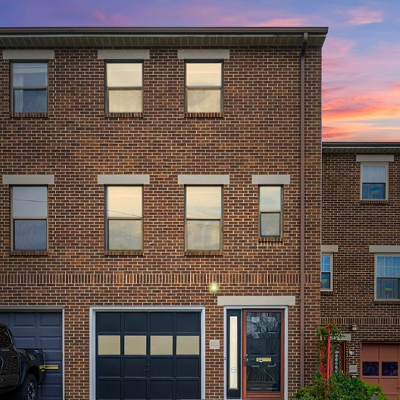When asked by city leaders if he had any ideas about improving Pittsburgh, Frank Lloyd Wright said, "Abandon it." How did city leaders reply?
Question submitted by: James Sopher, Bloomfield
Pittsburghers seem to seize on quotes about their town's past ugliness with a strange pride. Wright's quote is remembered almost as fondly as the description of Pittsburgh as "Hell with the lid off." But if the latter comparison does a disservice to Hell (which has a more active bar scene), the myth surrounding Wright's quote does a disservice to Pittsburgh.
The legend goes like this: During the 1940s, the businessmen who owned Pittsburgh's steel mills and blast furnaces realized that the town had somehow gotten all dirty and ramshackle. Since their own expertise lay in dirtying the city up in the first place, however, they didn't know where to start cleaning it. So one civic leader, financier Richard King Mellon, asked Wright how to improve the city. As a 1999 Pittsburgh Post-Gazette article relates the story, Wright "looked down at the river triangle that was more grime than gold and offered this advice: 'Abandon it.'"
I've looked in vain for the source of that legend. But whatever Mellon's response was, it couldn't have been surprise: Wright had said the same thing a half-decade before.
In June of 1935, Wright was visiting a Pittsburgh housing show to promote a model of an ideal community he called "Broadacre City." But Wright had some strange ideas about self-promotion: He drummed up enthusiasm for his projects by showing up someplace and insulting all the people who lived there & then expecting everyone to recognize his wisdom.
So when Wright was asked by a Post-Gazette reporter how to improve the city, the architect snapped, "It'd be cheaper to abandon it."
Most people only recall the last couple words of Wright's reply, and cite them as proof that Pittsburgh was an urban hellhole. But Wright's remarks about Pittsburgh probably say as much about Wright as they do about the city.
Wright saw cities in general, and Pittsburgh in particular, as embodiments of a centralized, mechanized culture that would one day squash human individuality. Wright's ideal community, Broadacre City, wasn't really a city at all; it was more like a vast, sprawling suburb. (Wright may have detested machines, but as several critics have pointed out, Broadacre City's far-flung layout would have made inhabitants dependent on the most pernicious machine of all, the automobile.)
And Wright's urban design expertise was a bit suspect. One biographer recounted traveling with Wright through a 1950s suburb: Wright, said Herbert Muschamp, "extended a magisterial hand out over the passing landscape, and proudly exclaimed, 'All this I have made possible.' & It [was] as though Einstein had beamed over Hiroshima." How, Muschamp wondered, could Wright take such pride in "an asphalt continent of Holiday Inns [and] Tastee-Freeze stands?" (To which one might say, Hey, it's good enough for Mayor Murphy's redevelopment plans.)
Perhaps wisely, Wright's remarks to the Post-Gazette were buried deep inside the paper, and its own response was fairly muted: In a brief editorial note, the paper suggested Wright may merely have been suffering from indigestion.
But on June 24, 1935, the Pittsburgh Sun-Telegraph published a lengthy op-ed piece in which Wright griped about everything in Pittsburgh -- even how many bridges it had. Pittsburgh, he argued, was trapped "looking and feeling uncomfortable as it tries to tie itself together with bridges, more bridges and again bridges and always in spite of the river."
In fact, Wright opined, "'In spite of the river' ought to be a Pittsburgh town slogan." Using lots of capital letters, he contended that "OWING TO ITS OWN 'SUCCESS'" as an industrial center, Pittsburgh was "DOOMED AND SLOWLY DYING."
Trying to look on the bright side. Wright assumed Pittsburgh would "be abandoned some day, a rusty ruin to tumble into the river, keeping the river waters still stained with oxide of iron." Which was good, because that would mean the end of economic "centralization," to be replaced by an era in which "thousands [would become] individual capitalists in their own right instead." If they didn't do so, the machines would take all their jobs until only one person "remained as supreme capitalistic lord of all."
Again, response to Wright's nightmare scenario was somewhat muted. In an editorial facing Wright's screed, the Sun-Telegraph opined, "There is & some truth in what Mr. Wright says. But we are not wholly without excuse." For one thing, the paper noted "The pioneers were not city planners," and in any case Wright's vision was "A DESIRABLE IDEAL, BUT NOT EASILY ATTAINABLE." (Apparently the Sun-Telegraph's editors knew how to use the "caps lock" key too.)
Wright wasn't exactly wrong about Pittsburgh: "In spite of the river" was a de facto slogan for many years. And many people did abandon Pittsburgh, moving to planned communities nearby. Have those hardy individualists thrown off the shackles of conformity? Well, several of their malls do have their choice of Tastee-Freeze stands.
The legend goes like this: During the 1940s, the businessmen who owned Pittsburgh's steel mills and blast furnaces realized that the town had somehow gotten all dirty and ramshackle. Since their own expertise lay in dirtying the city up in the first place, however, they didn't know where to start cleaning it. So one civic leader, financier Richard King Mellon, asked Wright how to improve the city. As a 1999 Pittsburgh Post-Gazette article relates the story, Wright "looked down at the river triangle that was more grime than gold and offered this advice: 'Abandon it.'"
I've looked in vain for the source of that legend. But whatever Mellon's response was, it couldn't have been surprise: Wright had said the same thing a half-decade before.
In June of 1935, Wright was visiting a Pittsburgh housing show to promote a model of an ideal community he called "Broadacre City." But Wright had some strange ideas about self-promotion: He drummed up enthusiasm for his projects by showing up someplace and insulting all the people who lived there & then expecting everyone to recognize his wisdom.
So when Wright was asked by a Post-Gazette reporter how to improve the city, the architect snapped, "It'd be cheaper to abandon it."
Most people only recall the last couple words of Wright's reply, and cite them as proof that Pittsburgh was an urban hellhole. But Wright's remarks about Pittsburgh probably say as much about Wright as they do about the city.
Wright saw cities in general, and Pittsburgh in particular, as embodiments of a centralized, mechanized culture that would one day squash human individuality. Wright's ideal community, Broadacre City, wasn't really a city at all; it was more like a vast, sprawling suburb. (Wright may have detested machines, but as several critics have pointed out, Broadacre City's far-flung layout would have made inhabitants dependent on the most pernicious machine of all, the automobile.)
And Wright's urban design expertise was a bit suspect. One biographer recounted traveling with Wright through a 1950s suburb: Wright, said Herbert Muschamp, "extended a magisterial hand out over the passing landscape, and proudly exclaimed, 'All this I have made possible.' & It [was] as though Einstein had beamed over Hiroshima." How, Muschamp wondered, could Wright take such pride in "an asphalt continent of Holiday Inns [and] Tastee-Freeze stands?" (To which one might say, Hey, it's good enough for Mayor Murphy's redevelopment plans.)
Perhaps wisely, Wright's remarks to the Post-Gazette were buried deep inside the paper, and its own response was fairly muted: In a brief editorial note, the paper suggested Wright may merely have been suffering from indigestion.
But on June 24, 1935, the Pittsburgh Sun-Telegraph published a lengthy op-ed piece in which Wright griped about everything in Pittsburgh -- even how many bridges it had. Pittsburgh, he argued, was trapped "looking and feeling uncomfortable as it tries to tie itself together with bridges, more bridges and again bridges and always in spite of the river."
In fact, Wright opined, "'In spite of the river' ought to be a Pittsburgh town slogan." Using lots of capital letters, he contended that "OWING TO ITS OWN 'SUCCESS'" as an industrial center, Pittsburgh was "DOOMED AND SLOWLY DYING."
Trying to look on the bright side. Wright assumed Pittsburgh would "be abandoned some day, a rusty ruin to tumble into the river, keeping the river waters still stained with oxide of iron." Which was good, because that would mean the end of economic "centralization," to be replaced by an era in which "thousands [would become] individual capitalists in their own right instead." If they didn't do so, the machines would take all their jobs until only one person "remained as supreme capitalistic lord of all."
Again, response to Wright's nightmare scenario was somewhat muted. In an editorial facing Wright's screed, the Sun-Telegraph opined, "There is & some truth in what Mr. Wright says. But we are not wholly without excuse." For one thing, the paper noted "The pioneers were not city planners," and in any case Wright's vision was "A DESIRABLE IDEAL, BUT NOT EASILY ATTAINABLE." (Apparently the Sun-Telegraph's editors knew how to use the "caps lock" key too.)
Wright wasn't exactly wrong about Pittsburgh: "In spite of the river" was a de facto slogan for many years. And many people did abandon Pittsburgh, moving to planned communities nearby. Have those hardy individualists thrown off the shackles of conformity? Well, several of their malls do have their choice of Tastee-Freeze stands.










